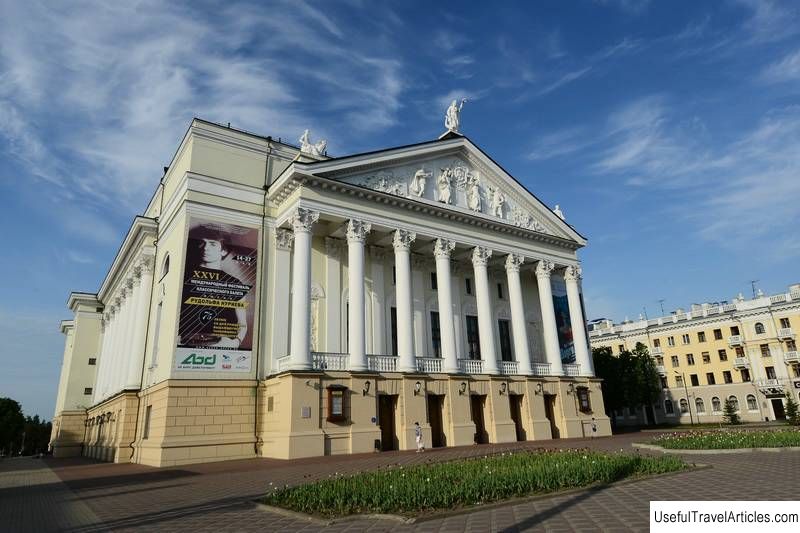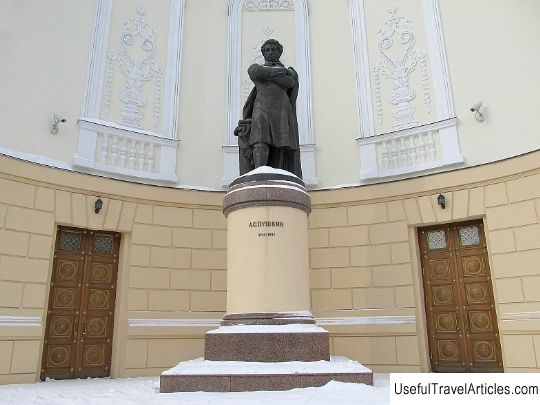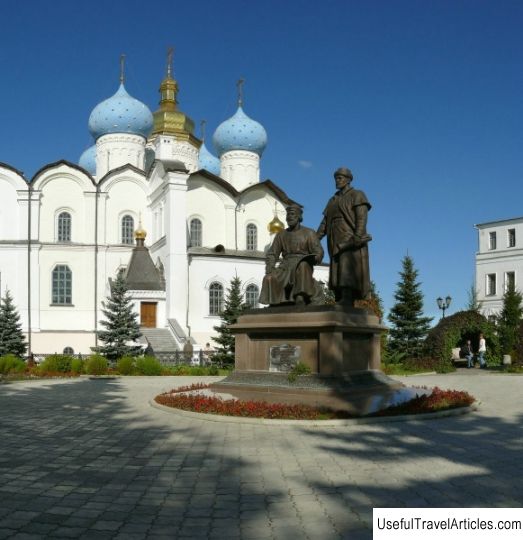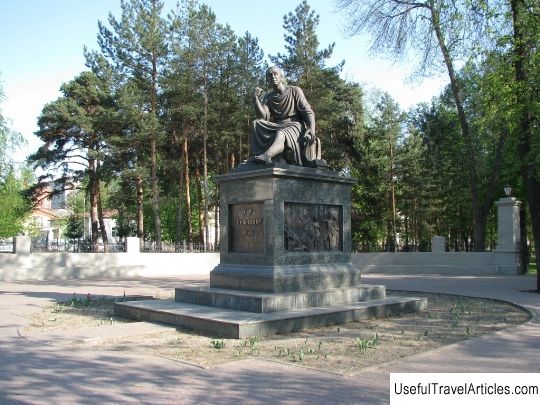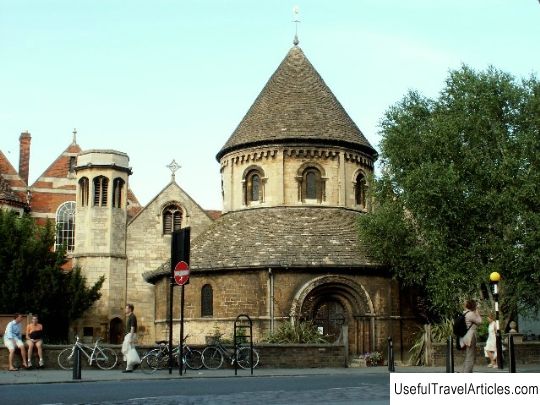Monument to Musa Jalil description and photo - Russia - Volga region: Kazan
Rating: 7,9/10 (2464 votes) 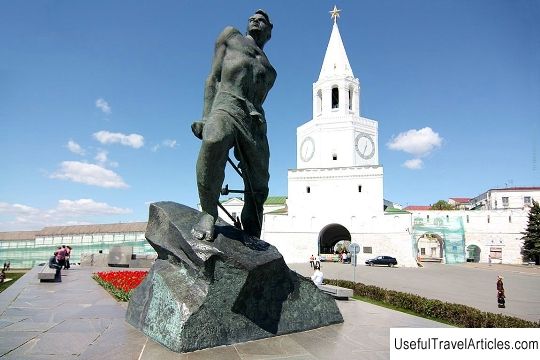
Monument to Musa Jalil description and photo - Russia - Volga region: Kazan. Detailed information about the attraction. Description, photos and a map showing the nearest significant objects. Photo and descriptionThe monument to Musa Jalil, a Tatar poet and patriot, is located at the main entrance to the Kazan Kremlin, not far from the Spasskaya Tower. The sculpture was installed in 1966. The authors of the monument were sculptor V.E. Tsigal and architect L.G. Golubovsky. The monument is a complex consisting of a trapezoidal granite platform, raised above ground level, a poet's sculpture and a granite wall. From the side of Millennium Square, a granite staircase rises to the monument. In the center of the composition there is a flower garden, and next to it there are benches made of polished granite stone. On the bronze monument there is a facsimile signature of the poet. On the granite wall there are stylized images of swallows and quotes from Jalil's poems. One of the lines is especially famous: “My life was ringing like song among the people, My death will sound like a song of struggle. ” Jalil (Zalilov) Musa Mustafovich was born on February 2, 1906, executed in Pletzensee prison on August 25, 1944. In 1956 he was awarded the title of Hero of the Soviet Union (posthumously). In 1914-1919 the poet studied at the Kazan madrasah, in 1919-1924 - in the city of Orenburg at the Tatar Institute of Public Education. In 1925 - 1927 Musa worked as an instructor of the district committees of the Komsomol. From 1927 to 1931 he studied at Moscow University and already works in children's magazines published in his native Tatar language. In 1933, Musa headed the literature department at the Kommunist newspaper. In 1935 he worked as the head of the literary department at the Tatar Opera Studio, which was located in Moscow. Already in these years, collections of his poems in the Tatar language began to be published. He writes popular lyrics and romances. He is the author of the libretto for the opera "Altynchech", which was awarded the State Prize of the USSR in 1948. From 1931 to 1941, Musa is the executive secretary of the board of the Writers' Union of the TASSR. In 1941 he was drafted to the front as a correspondent for the newspaper of the Second Shock Army, which was called "Courage". In 1942 he was seriously wounded and taken prisoner. He went through concentration camps in the Baltics, Poland and Germany. In German captivity, he organized a group of Tatar prisoners of war who carried out subversive work against the Nazis. In the camps and at the Moabit prison in Berlin, he continued to write poetry. On August 25, 1944, he, along with his comrades in the underground, was executed. This happened in the fascist prison of Pletzensee. Miraculously, through Belgium and France, two of his notebooks with poetry reached, written in captivity. There were 93 poems in them. The notebooks were named "Moabitsky". For this cycle of poems, Musa Jalil was awarded the Lenin Prize in 1957.         We also recommend reading Soenderborg Slot description and photos - Denmark: Soenderborg Topic: Monument to Musa Jalil description and photo - Russia - Volga region: Kazan. |
